
A Course in z-Tree
3: Roles, Matching, Values, Repetitions
Matteo Ploner
Università degli Studi di Trento
General Parameters

-
Define two important dimensions of the experiment
- Number of participants
- Number of repetitions of the task (Periods)
- Just click on "Background" (tree icon)
☝ zTree will re-run all your code for the # of paying periods specified
Roles

-
TASK: assign some to role Green and some to role Blue
- Generally, allocation is random
Roles (1)
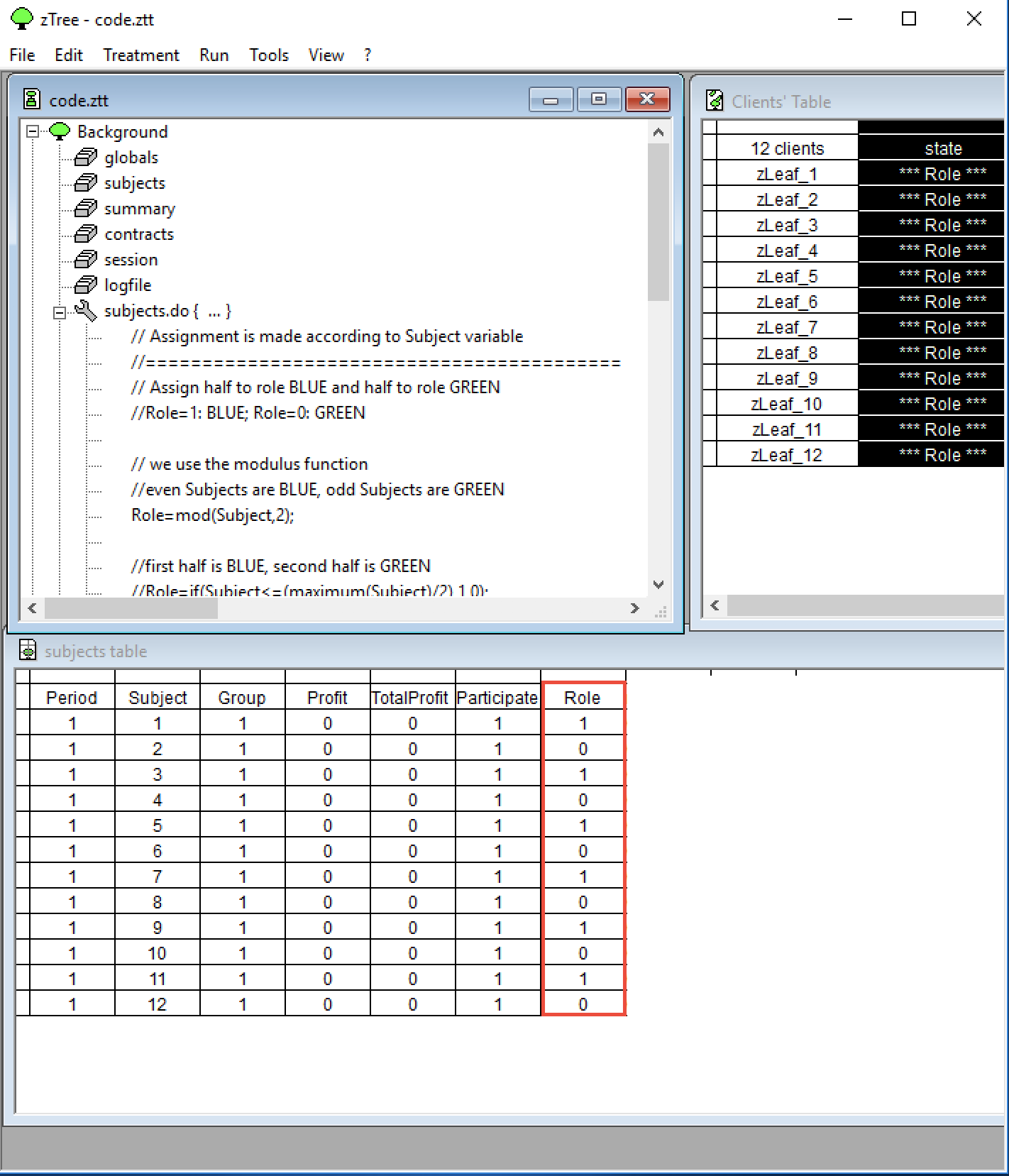
Assignment is made according to Subject variable
//Role=1: BLUE; Role=0: GREEN
// we use the modulus function
//even Subjects are BLUE, odd Subjects are GREEN
Role=mod(Subject,2);
- The mod function computes the remainder after dividing the first elment by the second one (Euclidean division)
- e.g., mod(4,3) returns 1; mod (2,3) returns 2; mod(3,3) returns 0 ...
Roles (2)
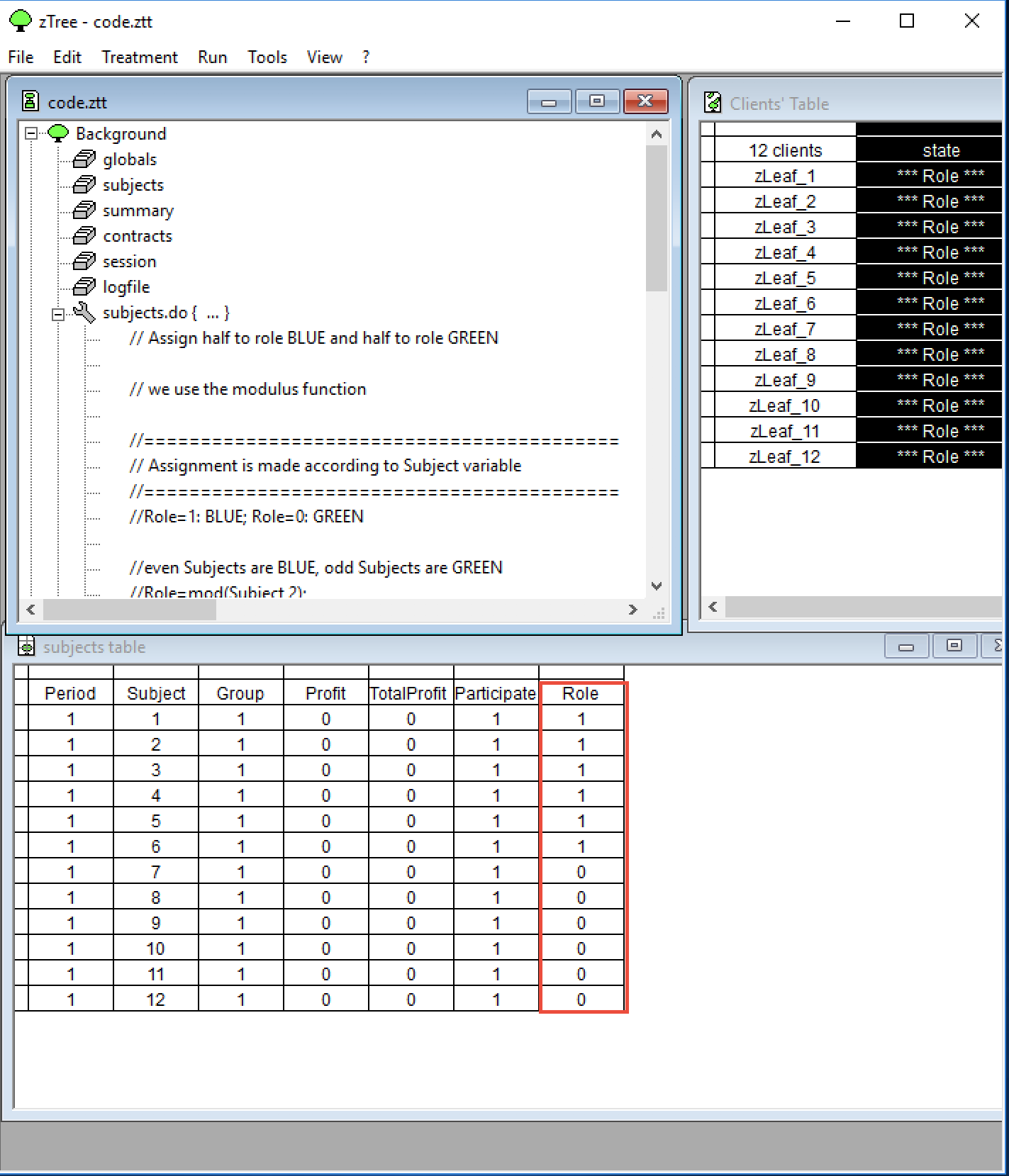
Assignment is made according to Subject variable
//Role=1: BLUE; Role=0: GREEN
// we use the modulus function
//first half is BLUE, other half GREEN
Role=if(Subject<=(maximum(Subject)/2),1,0);
Roles (3)
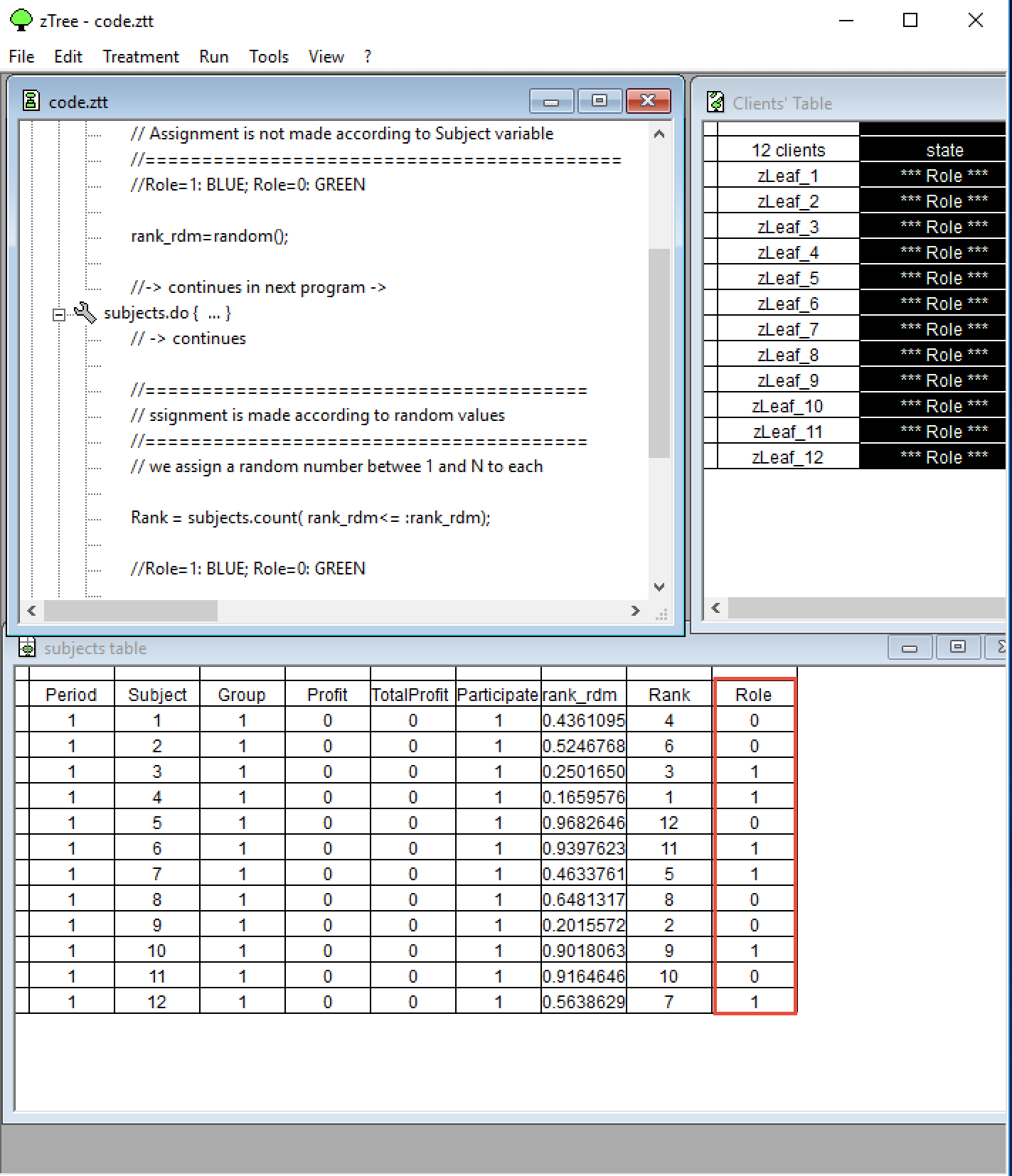
Assignment is NOT made according to Subject variable
//Role=1: BLUE; Role=0: GREEN
rank_rdm=random();
// we assign a random number between 1 and N to each
rank = subjects.count( rank_rdm<= :rank_rdm);
//Role=1: BLUE; Role=0: GREEN
//even Subjects are BLUE, odd Subjects are GREEN
Role=mod(rank,2);
Values

- TASK: assign to some a certain value conditional upon their role
- The green get value X, the blue get value Y
Values (2)
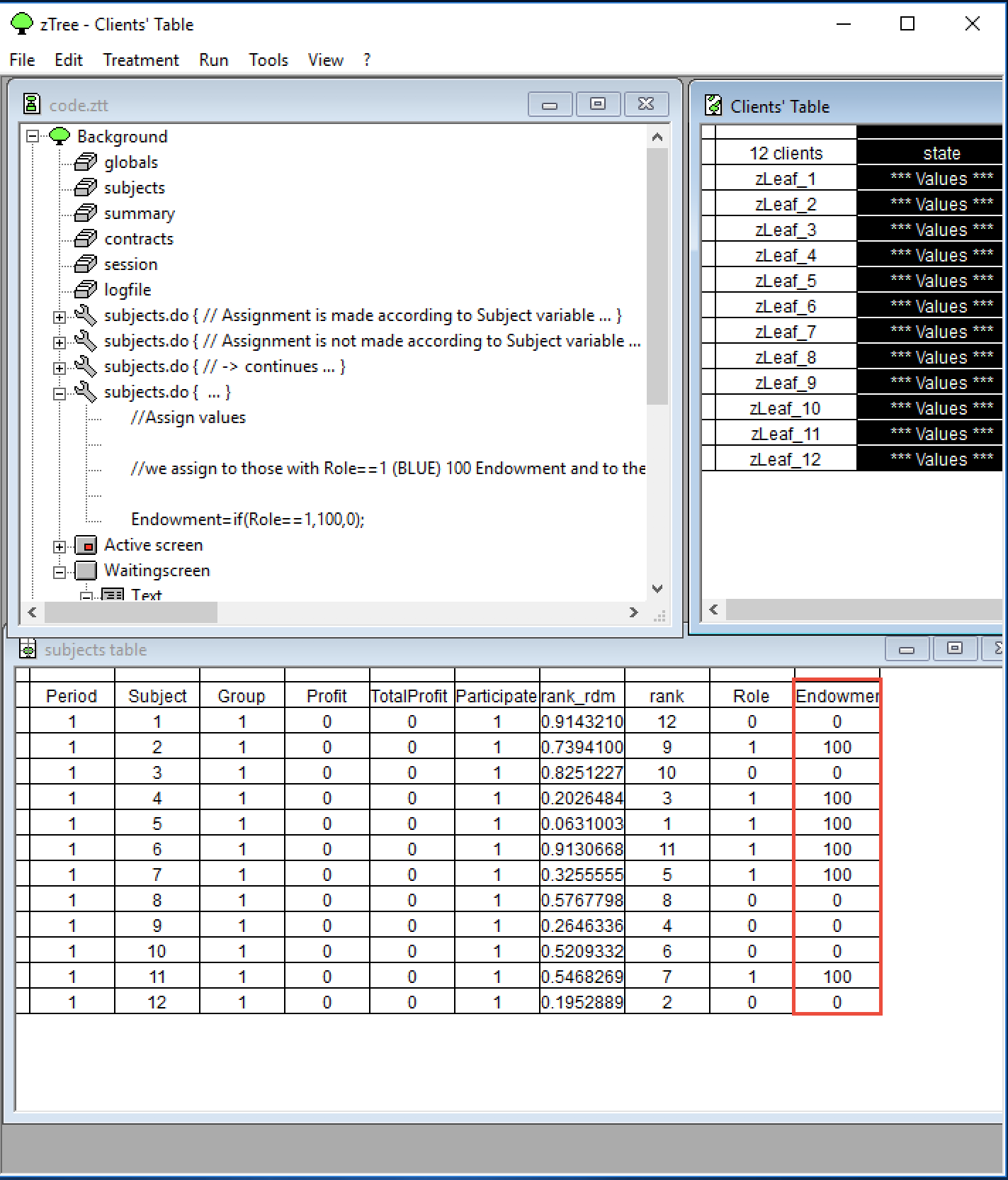
Assign an endowment according to the role
//we assign to those with Role==1 (BLUE) 100 Endowment and to the others 0
Endowment=if(Role==1,100,0);
Values (3)

- TASK: assign to everyone the same random value $\in \{0...100\}$
Values (4)
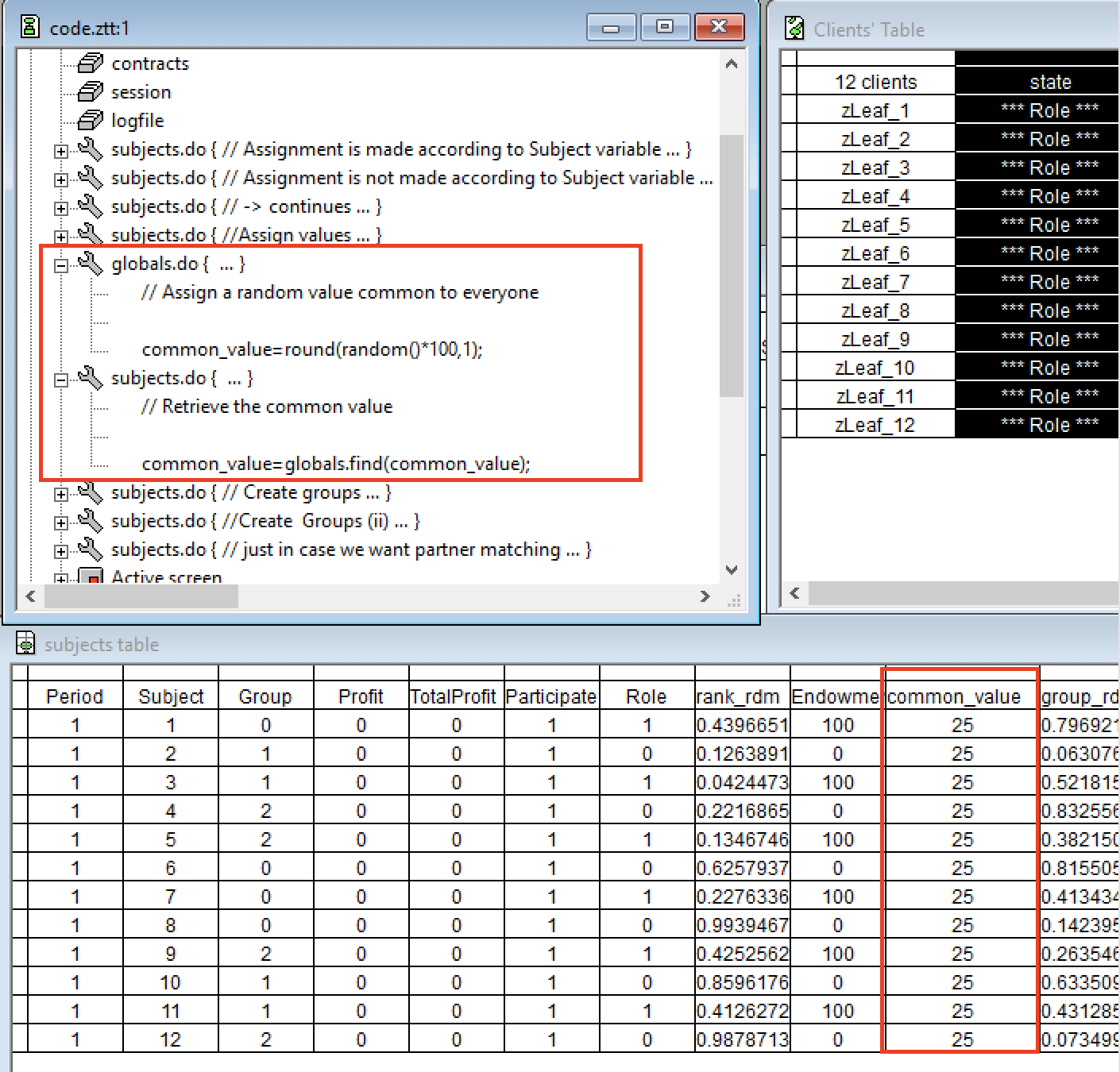
First we create the value in globals
Then we reterieve it to subjects
Then we reterieve it to subjects
common_value=round(random()*100,1);
common_value=globals.find(common_value);
- This can be very useful to
- induce some common random shock
- select a common period for payment
- randomly end the experiment
Matching
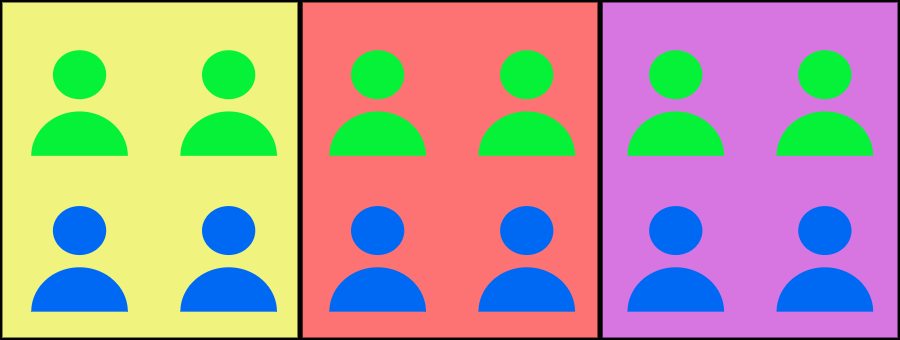
-
TASK: group participants into interacting groups
-
3 groups of 4
- 2 blues and 2 greens in each group
-
3 groups of 4
Matching

Create homogenous groups
First, assign a random number
First, assign a random number
group_rdm=random();
Endowment=if(Role==1,100,0);
rank = subjects.count(Role==:Role & rank_rdm<= :rank_rdm);
Group = mod(rank,maximum(Subject)/4);
Repetitions

-
How are participants going to interact?
- Partner or stranger?
Matching over repetitions


Define the type of matching
- Partner
-
if (Period>1){ Group=OLDsubjects.find(same(Subject),Group); }else{ Group=Group; } - (Random) Stranger
- Just run the code for Group formation in each Period!
Parameter Table
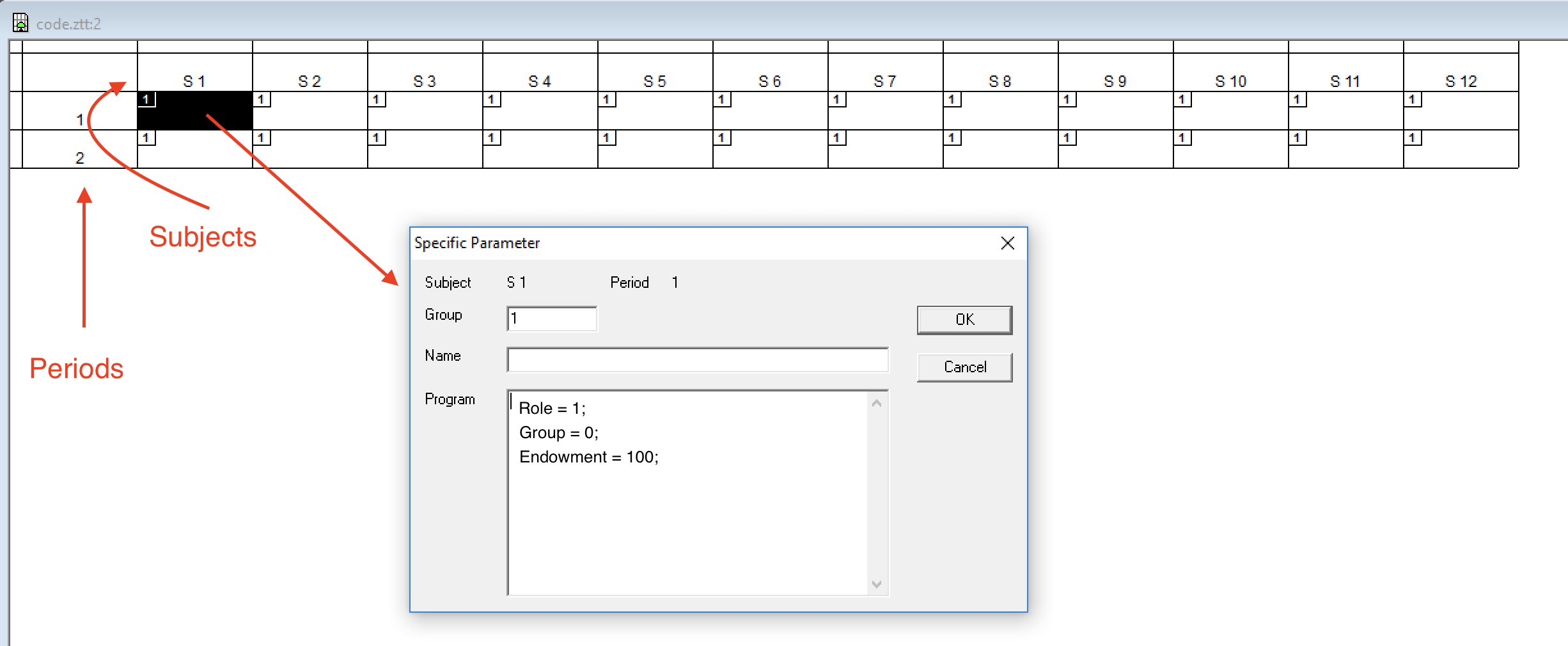
- The matching can be done via the Parameter table
- However ...
- Static approach that does not handle changes in periods and number of subjects
- Boring to compile
Assignment
- Create an experiment with 4 participants
- Match them in 2 groups of 2 (using the parameter table)
- Assign 1 participant in each group to role 1 and the other to role 2
- Give an endowment of 100 to those in role 1 and 50 to those in role 2
- Repeat the interaction 10 $\times$ with roles and group composition fixed (partner matching)
- Each round display to participants the role and the endowment
- Repeat the same experiment without using the parameter table
